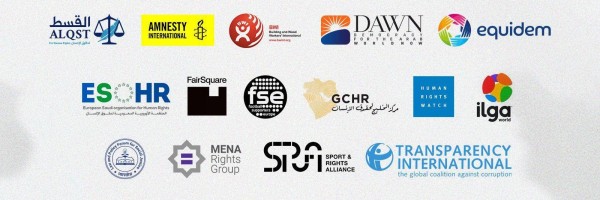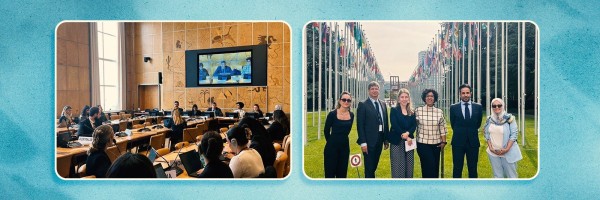At the UN Human Rights Council’s 48th Regular Session this month, ALQST and partner NGOs delivered three oral statements addressing human rights violations in Saudi Arabia, including the systematic practices of arbitrary detention, repression of peaceful dissent and reprisals against activists.
In a joint oral statement before the Council on 27 September 2021, ALQST, International Service for Human Rights (ISHR) and the Gulf Centre for Human Rights (GCHR) highlighted the quickening pace of violations in Saudi Arabia in 2021, including a resurgence in use of the death penalty. By September, ALQST had documented twice as many executions in 2021 as for the whole of 2020, and despite the authorities’ announcement of a halt to death sentences for many crimes committed in childhood, June 2021 saw the execution of Mustafa Hashem al-Darwish for alleged protest-related offences that may have occurred when he was 17 years old. The NGOs underscored the point that once the spotlight on Saudi Arabia as host of the G20 summit in November 2020 had faded, violations resumed with renewed vigour, with fresh waves of arrests and forced disappearances of civilians and bloggers, more lengthy prison sentences for human rights defenders, and further ill-treatment of prisoners. Meanwhile, women human rights defenders who had been released from detention earlier in 2021 remained subject to severe restrictions, including bans on work and travel and being denied the opportunity to speak in public.
In another joint oral statement, made during the Interactive Dialogue with the Working Group on Arbitrary Detention on 20 September 2021, ALQST and allied groups testified that "hundreds of individuals are serving lengthy prison sentences on the basis of the Counter-Terrorism and Anti-Cybercrime Laws, which are systematically used to target any peaceful dissenting voices in the kingdom". Indeed, many human rights defenders languish in Saudi prisons, including Right Livelihood Laureates Mohammed al-Qahtani and Waleed Abu al-Khair, despite the Working Group's findings that their detentions were arbitrarily adjudicated. Right Livelihood, ISHR and MENA Rights Group joined ALQST in calling on the Working Group to push for reform of the kingdom's Anti-Cybercrime and Counter-Terrorism Laws in ways that will guarantee freedom of expression and association.
In a joint statement on 29 September 2021 in response to the UN Secretary-General's report on reprisals, ALQST and Right Livelihood highlighted the Saudi authorities’ systematic use of reprisals against human rights activists, including Right Livelihood Laureate Abdullah al-Hamid, a founding member of the Saudi Civil and Political Rights Association (ACPRA). Al-Hamid died in detention in April 2020 due to medical neglect that has been described as arbitrary deprivation of the right to life. The Secretary-General's report (A/HRC/48/28) itself drew attention to the recognised use of counter-terrorism legislation and security-related mechanisms as a means to persecute human rights activists in Saudi Arabia.
ALQST's demand for action was unequivocal, calling on the Council to urge Saudi Arabia to promptly reform the Anti-Cybercrime and Counter-Terrorism Laws and to release all human rights defenders arbitrarily detained, and also calling on the Council to establish a monitoring and reporting mechanism on the human rights situation in Saudi Arabia.




